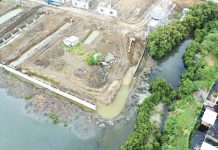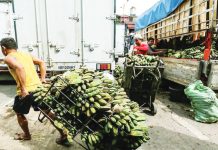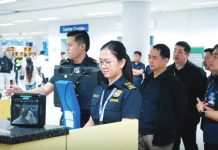STRONG inflows from land-based overseas Filipino workers (OFWs) boosted cash remittances in June 2025 to USD2.99 billion, up 3.7 percent from USD2.88 billion during the same month last year.
The Bangko Sentral ng Pilipinas (BSP) on August 15 said inflows from land-based overseas workers rose to 3.7 percent year-on-year in June to USD2.43 billion.
Remittances from sea-based workers also increased, climbing 3.5 percent to USD555 million.
In the first half of 2025, cash remittances totaled USD16.25 billion, up 3.1 percent from USD15.75 billion a year earlier.
By country of origin, the bulk of remittances came from the United States (40.1 percent), followed by Singapore (7.1 percent) and Saudi Arabia (6.2 percent).
During the same period, personal remittances, which include in-kind items sent home by OFWs, rose 3.7 percent in June to USD3.33 billion; while the end-June growth stood at 3.1 percent to USD18.67 billion.
While the increase remains in the single digits, Rizal Commercial Banking Corporation (RCBC) chief economist Michael Ricafort said it is still “a good signal” for the economy, as remittances remain a key driver of growth, particularly through consumer spending, which accounts for about 68 percent of domestic economic activity.
“It is, nevertheless, still a good signal and a bright spot for the overall economy as an important growth driver, especially in terms of consumer spending,” he explained.
Ricafort also noted that the 3.7 percent rise in cash remittances in June was the highest monthly inflow in the past six months, since the record USD3.38 billion posted in December 2024.
While there is a possibility of a hit to remittances from the US, partly due to the impact of US protectionist policies, Ricafort said the latest data showed above-average growth of inflows from other areas such as Singapore, Saudi Arabia, the UAE, Qatar, Taiwan, and Hong Kong.
Remittances to the Philippines, he added, have consistently been the fourth largest after India, Mexico, and China, due to strong demand for skilled OFWs such as seafarers and medical professionals. (PNA)







